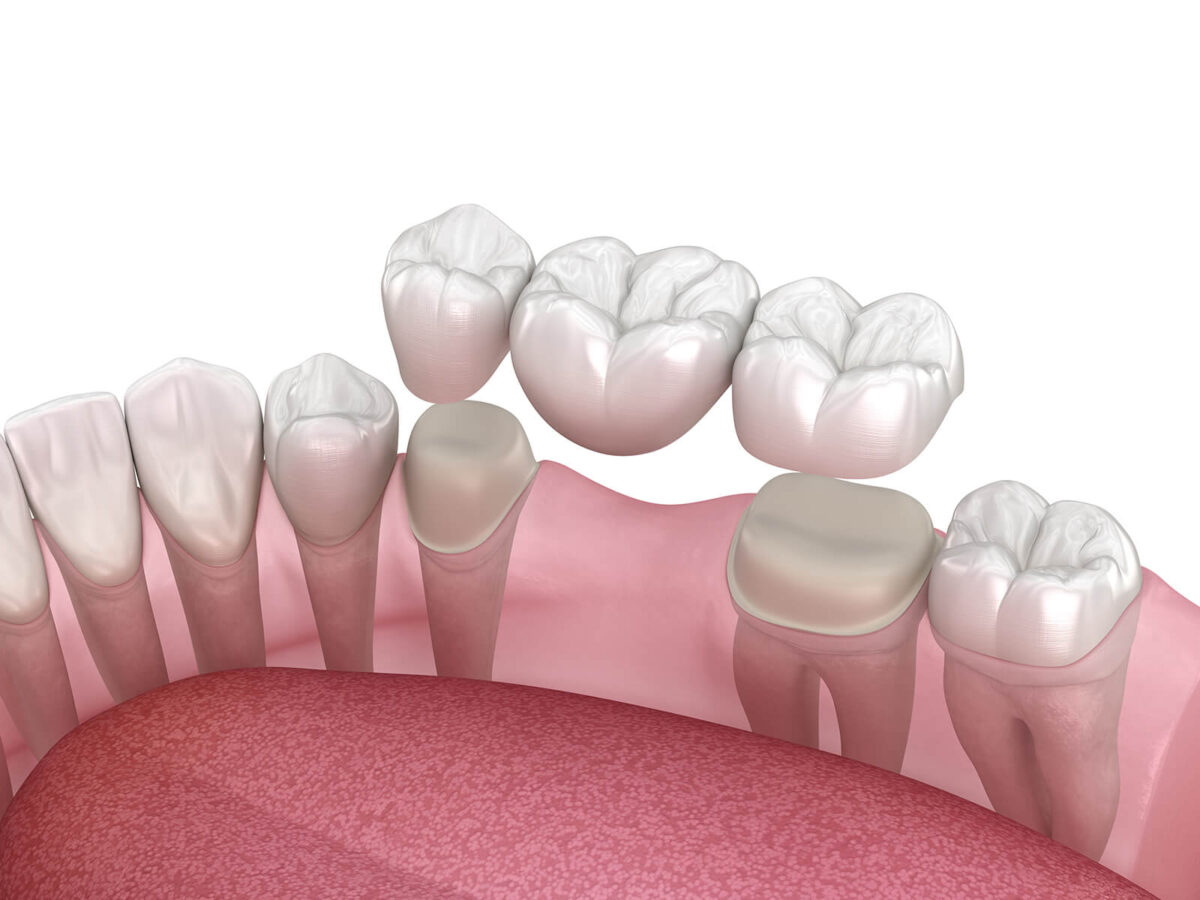Introduction:
Dental bridges are a favored solution for replacing missing teeth, offering both functional and aesthetic benefits. However, despite their effectiveness, bridges can fail due to various factors.
Understanding the reasons behind dental bridge failure and adhering to proper oral hygiene practices are key to maintaining your bridge’s integrity over time.
1. Poor Oral Hygiene: The Foundation of Bridge Failure
- Effects: Plaque and bacteria buildup can lead to tooth decay in supporting teeth and gum disease, both of which undermine the bridge’s stability.
- Prevention: Implement a rigorous oral hygiene routine, including brushing twice a day and daily flossing, particularly around and under the bridge. An antiseptic mouthwash can also help minimize bacterial presence.
2. Tooth Decay and Secondary Cavities: The Hidden Threat
- Effects: Decay in the teeth anchoring the bridge compromises its support, making the bridge susceptible to loosening or failure.
- Prevention: Regular oral hygiene, a diet low in sugary foods, and consistent dental check-ups are vital. Early detection and treatment of cavities can prevent them from affecting the bridge.
3. Structural Issues and Wear: Time’s Impact
- Effects: Normal wear and tear, as well as accidental damage, can lead to fractures, chips, or wear on the bridge, affecting its function and aesthetics.
- Prevention: Use of a night guard for those who grind their teeth, avoiding hard and sticky foods, and regular dental visits for bridge assessment can mitigate these risks.
4. Poor Fit and Adaptation: Precision Matters
- Effects: A bridge that doesn’t fit well can lead to discomfort, bite issues, and spaces that harbor bacteria, potentially leading to decay and gum disease.
- Prevention: Ensure your dental bridge is installed by a reputable dentist who will ensure a precise fit. Regular check-ups allow for adjustments as needed, and any discomfort should be addressed promptly to avoid complications.
Conclusion:
A dental bridge can significantly improve your quality of life by restoring your smile and bite. However, the longevity of a dental bridge largely depends on understanding and mitigating the risks of failure through proper care and maintenance. By focusing on thorough oral hygiene, addressing structural concerns early, and ensuring a proper fit from the start, you can enjoy the benefits of your dental bridge for years to come. Regular visits to your dentist for check-ups and maintenance play a crucial role in the health and stability of your dental bridge, ensuring that it continues to serve its purpose effectively.


